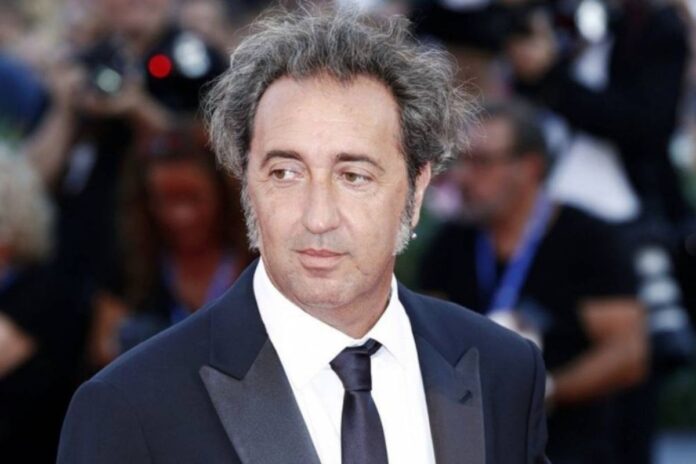Paolo Sorrentino (born 31 May 1970) is a renowned Italian film director, screenwriter, and writer, widely regarded as one of the most prominent filmmakers of contemporary Italian cinema. Known for his visually striking and complex dramas, Sorrentino’s work has often been compared to legendary filmmakers like Federico Fellini and Michelangelo Antonioni. He has won numerous prestigious awards, including an Academy Award, BAFTA Award, two Cannes Film Festival prizes, and four European Film Awards. In Italy, he has earned eight David di Donatello awards and six Nastro d’Argento awards.
Introduction
Paolo Sorrentino is a name that resonates in the world of cinema. Known for his visually stunning and emotionally complex films, Sorrentino’s work has earned him a place among the most celebrated filmmakers of the modern era. From the Oscar-winning The Great Beauty to Youth and The Hand of God, Sorrentino’s films captivate audiences with their philosophical depth, visual grandeur, and profound storytelling. In this article, we’ll dive into the life, career, and signature style of Paolo Sorrentino, offering insight into what makes his work so extraordinary.
Exploring the Life and Career of Paolo Sorrentino
Early Life and Influences
Born in Naples, Italy, in 1970, Paolo Sorrentino’s journey into the world of cinema was shaped by his early exposure to Italian culture and the rich cinematic history of the country. Sorrentino studied at the University of Naples, where he initially pursued a degree in economics before turning to filmmaking. His early influences include Italian auteurs like Federico Fellini and Michelangelo Antonioni, whose profound impact on Sorrentino’s approach to film can be seen throughout his career.
Despite facing initial challenges in getting his work recognized, Sorrentino’s persistence paid off with his debut feature film, One Man Up (L’uomo in più), in 2001. This film, which explores the themes of identity and ambition, set the stage for Sorrentino’s future success.
Key Films and Accomplishments
Paolo Sorrentino is best known for a series of critically acclaimed films that have received both national and international recognition. Here are some of his most notable works:
- The Great Beauty (La Grande Bellezza) (2013)
Perhaps Sorrentino’s most famous film, The Great Beauty won the Academy Award for Best Foreign Language Film in 2014. The movie is a visually spectacular exploration of Rome’s high society and the existential musings of its protagonist, Jep Gambardella. The film’s thematic depth, combined with its striking cinematography, solidified Sorrentino’s status as a master storyteller. - Youth (2015)
Starring Michael Caine and Harvey Keitel, Youth explores themes of aging, friendship, and the passage of time. Set in a luxurious Swiss hotel, the film beautifully juxtaposes the inner lives of two old friends against the stunning alpine backdrop, emphasizing Sorrentino’s unique approach to narrative and visuals. - The Hand of God (È stata la mano di Dio) (2021)
A deeply personal film for Sorrentino, The Hand of God reflects on his own adolescence in Naples, capturing the joy and tragedy of growing up in the city. The film showcases his ability to blend personal history with universal themes, and it earned him a nomination for Best International Feature at the Academy Awards. - The Consequences of Love (2004)
This early work further established Sorrentino’s distinctive cinematic voice. The film delves into the life of an emotionally withdrawn man who leads a monotonous existence in a Swiss hotel, ultimately revealing the complexity of his hidden life.
These films, among others, have not only solidified Paolo Sorrentino’s position as one of Italy’s most important directors but have also attracted a global audience who appreciate his deep, contemplative storytelling.
Style and Themes in Sorrentino’s Work
What truly sets Paolo Sorrentino apart is his ability to combine visual grandeur with philosophical musings. His films are known for their striking cinematography, often featuring long, lingering shots of landscapes or interiors that evoke a deep sense of melancholy or introspection.
Visual Grandeur
Sorrentino’s attention to visual composition is one of the key elements that distinguishes his work. His films often feature highly stylized, meticulously crafted scenes that not only reflect the emotional undercurrents of the story but also create an immersive experience for the audience. Whether it’s the lush Roman landscapes in The Great Beauty or the luxurious hotel setting in Youth, Sorrentino’s use of location and cinematography serves as a visual extension of his characters’ inner lives.
Themes of Aging and Nostalgia
Many of Sorrentino’s films explore themes of aging, memory, and nostalgia. In Youth, the two aging protagonists grapple with the idea of time passing, while The Hand of God delves into the fragility of youth and the weight of loss. Sorrentino often contrasts the fleeting nature of beauty and success with the more enduring yet often painful aspects of human existence.
Existential and Philosophical Exploration
Sorrentino’s work is deeply philosophical, often questioning the meaning of life, the nature of beauty, and the complexities of human emotions. The Great Beauty serves as a poignant meditation on the search for meaning in an often superficial world. This existential approach is central to many of his films, where characters embark on journeys of self-discovery or wrestle with inner turmoil.
Paolo Sorrentino – Filmography
Feature Films:
- 1998 – The Dust of Naples – Director: No, Writer: Yes
- 2001 – One Man Up – Director: Yes, Writer: Yes
- 2004 – The Consequences of Love – Director: Yes, Writer: Yes
- 2006 – The Family Friend – Director: Yes, Writer: Yes
- 2008 – Il Divo – Director: Yes, Writer: Yes
- 2011 – This Must Be The Place – Director: Yes, Writer: Yes
- 2013 – The Great Beauty – Director: Yes, Writer: Yes
- 2014 – Rio, I Love You – Director: Yes, Writer: Yes (Segment: La Fortuna)
- 2015 – Youth – Director: Yes, Writer: Yes
- 2018 – Loro – Director: Yes, Writer: Yes
- 2021 – The Hand of God – Director: Yes, Writer: Yes
- 2024 – Parthenope – Director: Yes, Writer: Yes
Short Films and Documentaries:
- 1994 – Un paradiso – Director: Yes, Writer: Yes
- 1998 – L’amore non ha confini – Director: Yes, Writer: Yes
- 2001 – La notte lunga – Director: Yes, Writer: Yes
- 2002 – La primavera del 2002. L’Italia protesta, l’Italia si ferma – Director: Yes, Writer: No (Documentary)
- 2004 – Giovani talenti italiani – Director: Yes, Writer: No (Documentary, Segment: Quando le cose vanno male)
- 2009 – La partita lenta – Director: Yes, Writer: Yes
- 2009 – L’Aquila 2009. Cinque registi tra le macerie – Director: Yes, Writer: No (Documentary, Segment: L’assegnazione delle tende)
- 2010 – Napoli 24 – Director: Yes, Writer: Yes (Documentary, Segment: La principessa di Napoli)
- 2011 – In the Mirror – Director: Yes, Writer: Yes (Commercial for Yamamay)
- 2014 – Sabbia – Director: Yes, Writer: No (Commercial for Armani)
- 2014 – The Dream – Director: Yes, Writer: Yes (Commercial for Bulgari)
- 2017 – Killer in Red – Director: Yes, Writer: Yes (Commercial for Campari)
Acting Roles:
- 2006 – The Caiman – Role: Aida’s Husband
- 2009 – A Question of the Heart – Role: Alberto’s Friend
Television Series:
- 2016 – The Young Pope – Director: Yes, Writer: Yes, Executive Producer: Yes (10 episodes; also creator)
- 2018-Present – My Brilliant Friend – Writer: Yes
- 2019 – The New Pope – Director: Yes, Writer: Yes, Executive Producer: Yes (9 episodes; also creator)
- 2025-Present – M. Son of the Century – Writer: Yes
Other TV Work:
- 2000 – La squadra – Director: Yes, Writer: Yes (2 episodes)
- 2004 – Sabato, domenica e lunedì – Director: Yes (Television film)
- 2010 – Boris – Himself (Episode: “Nella rete”)
- 2014 – Le voci di dentro – Director: Yes (Television film)
- 2020 – Homemade – Director: Yes, Writer: Yes (Episode: “Voyage Au Bout De La Nuit”)
- 2021 – Cinque pezzi facili – Director: Yes (5 episodes)
- 2023 – Call My Agent – Italia – Himself (Season 1, episode 2)
Bibliography:
- Novels:
- Everybody’s Right (Italian: Hanno tutti ragione) – Europa Editions, 2011
- Gli aspetti irrilevanti – Mondadori, 2016
- Short Stories:
- Tony Pagoda e i suoi amici – Feltrinelli, 2012
FAQ About Paolo Sorrentino
1. What is Paolo Sorrentino’s most famous film?
Paolo Sorrentino’s most famous film is The Great Beauty (La Grande Bellezza), which won the Academy Award for Best Foreign Language Film in 2014. The film is widely regarded as one of the best of the 21st century.
2. Has Paolo Sorrentino won any awards?
Yes, Paolo Sorrentino has won several prestigious awards, including an Academy Award for Best Foreign Language Film for The Great Beauty, a Golden Globe, and numerous international film festival awards.
3. What are the key themes in Paolo Sorrentino’s films?
Key themes in Sorrentino’s films include aging, the passage of time, the search for meaning, beauty, and existential questions about life. His films often feature philosophical explorations alongside visually striking cinematography.
4. What makes Sorrentino’s cinematography unique?
Sorrentino’s cinematography is known for its grandeur and meticulous composition. He uses long, sweeping shots to evoke emotion, and his films often feature visually immersive landscapes and interiors that reflect the characters’ inner lives.
Wrapping Up
Paolo Sorrentino’s films are more than just entertainment—they are visual and intellectual experiences that linger long after the credits roll. With his unique ability to blend stunning visuals with deep existential themes, Sorrentino has cemented his place as one of the most important filmmakers of modern cinema. Whether you’re drawn to the sweeping beauty of The Great Beauty, the reflective tone of Youth, or the personal storytelling in The Hand of God, Sorrentino’s work offers something for everyone to ponder.
So, if you haven’t yet experienced the genius of Paolo Sorrentino, now is the perfect time to dive into his rich, thought-provoking world of cinema.




